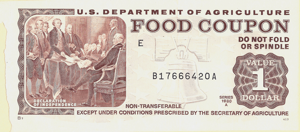By Rollo Martins
Cross Posted from PolicyMic.com
America has a tool that millennials can — and should — use to trump all the negatives that are piling up at their doorsteps (the high unemployment, international competition, and all that college debt). This tool is called the U. S. dollar, which aligned with a fiscal policy designed for growth and prosperity, would eliminate their debt and give them full employment for the remainder of their lives.
A sea-change is occurring in economics and the University of Missouri-Kansas City is leading the way. Combining a fiscal policy geared toward prosperity and growth with a new understanding of what fiat currency means for the country, the economists there are touting what is being called Modern Money Theory. MMT turns traditional neoclassical economics on its head: Instead of tax then spend, it’s spend then tax. In other words, we can spend whatever we want. (But I oversimplify: There is still inflation to worry about.) This is all great news for the country, and for the millennial generation in particular.












